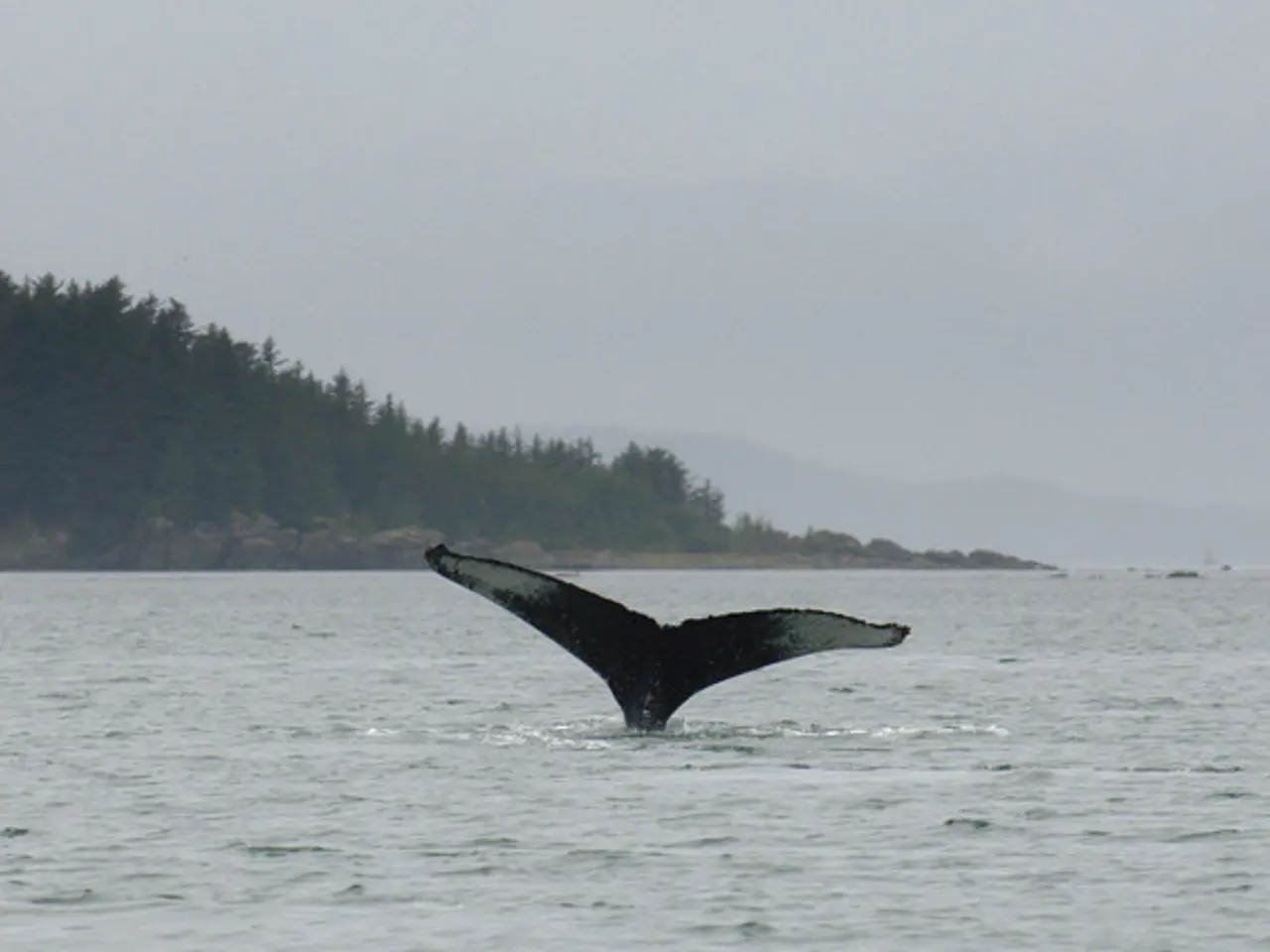Stray Silence Among Blue Whales suggests Concerning Trend
In the vast, quiet expanse of the ocean, the absence of a familiar sound is causing concern among marine researchers. Blue whale songs, vital for navigation, maintaining social bonds, and attracting mates, have been growing scarce, signalling serious disruptions in ocean ecosystems.
This silence primarily results from climate-driven declines in krill populations, the blue whales' main food source. As ocean temperatures rise and marine heatwaves like "The Blob" take hold, krill, which thrive in cooler waters, either migrate to cooler depths or dwindle in numbers, leaving whales struggling to find enough food.
The disappearance of blue whale songs reflects broader ecological distress, including marine heatwaves that have devastated krill populations. Since krill are a foundational food source for many marine species, their scarcity disrupts food chains and signals deteriorating ocean health.
The decline in blue whale songs not only affects the whales but also other krill-dependent species, destabilizing marine food webs. Researchers use hydrophones on the ocean floor to monitor baleen whale vocalizations, and the diminishing presence of krill in certain areas forces blue whales to alter their behavior and spend more time foraging, leaving them less energy for their vital vocalizations.
The silence complicates efforts to monitor and protect blue whales, as acoustic detection is key for tracking them. Moreover, the whales’ reduced energy reserves and altered behaviors linked to food scarcity may impair reproduction and survival, threatening population recovery.
Understanding these acoustic changes helps inform policymakers and conservationists to better adapt strategies under climate change pressures. The correlation between the frequency of whale songs and their access to food emphasizes the delicate balance of ocean life and the way disruptions at the base of the food chain can have cascading effects.
The increasing noise in the oceans from human activities like shipping, drilling, and industrial operations further deteriorates the acoustic environment of the oceans. Human-made noise interferes with whales' essential behaviors like navigation, communication, and foraging. The increasing noise creates a "sonic haze" that drowns out natural sounds, affecting whale communication and social structure.
The decline in whale vocalizations is a significant indicator of broader environmental changes in the oceans. The loss of blue whale calls, particularly in regions affected by marine heatwaves, points to deeper issues within the ocean's ecosystems.
In a recent study published in PLOS ONE, researchers from the Monterey Bay Aquarium Research Institute (MBARI) investigated the disappearance of blue whale songs in California's central coast. The study shows a significant decrease in the intensity and frequency of blue whale calls, particularly in warmer sea temperature areas.
Conservation efforts should address climate change impacts, protect critical feeding areas, and reduce noise pollution in the oceans to ensure the future of marine giants like blue whales. This serves as a critical warning for marine conservation and the urgency to address climate impacts on ocean life.
- The silence in blue whale songs, a result of climate-driven declines in krill populations, also indicates a distress in health-and-wellness of marine species, as krill play a foundational role in numerous food chains and are linked to the vitality of the entire ocean ecosystem.
- The decline in blue whale vocalizations, observed in areas affected by marine heatwaves and signs of climate-change, is not only a concern for the species itself, but also for the environmental science of the climate-change and its cascading effects on fitness-and-exercise, health-and-wellness, and the overall health of the ocean environment.




